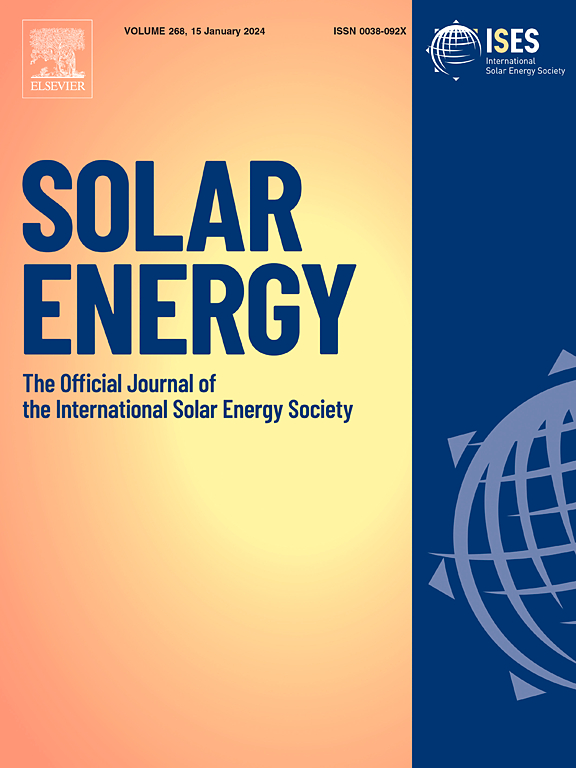Optimizing front grid electrodes of flexible CIGS thin film solar cells with different shapes
IF 6
2区 工程技术
Q2 ENERGY & FUELS
引用次数: 0
Abstract
While using metal grid electrodes improves the performance of solar cells, it inevitably leads to frontal shading losses, series resistance losses, and losses due to lateral currents in the top layer. In this study, we analyze the influence of the front electrode grid line size parameters on the efficiency loss of copper indium gallium selenide (CIGS) thin-film solar cells and then use numerical analysis to obtain the optimal parameters for the design of the grid line size, and at the same time, explore the optimal design strategy for the grid line for non-conventional shaped solar cells. The experiments show that the photoelectric conversion efficiencies of the optimized rectangular solar cell samples are increased by 2.19% and 5.44%, respectively, over the two pre-optimized samples. The optimized design parameters can be used to improve the conversion efficiency of solar cell modules in commercial production, and the optimization method, which only modifies the relevant parameters of the grids, does not require the introduction of complex manufacturing methods in production, which can save costs and is easy to be extended to the production of different types of CIGS thin film solar cell modules in order to achieve the goal of improving efficiency.
优化不同形状柔性 CIGS 薄膜太阳能电池的前栅电极
虽然使用金属栅电极可以提高太阳能电池的性能,但不可避免地会导致正面遮光损失、串联电阻损耗以及顶层横向电流造成的损失。在本研究中,我们分析了正面电极栅线尺寸参数对铜铟镓硒(CIGS)薄膜太阳能电池效率损失的影响,并通过数值分析获得了栅线尺寸设计的最佳参数,同时探索了非常规形状太阳能电池的栅线最佳设计策略。实验表明,优化后的矩形太阳能电池样品的光电转换效率比预先优化的两个样品分别提高了 2.19% 和 5.44%。优化后的设计参数可用于提高商业化生产中太阳能电池组件的转换效率,而且该优化方法只需修改电栅的相关参数,不需要在生产中引入复杂的制造方法,可以节约成本,易于推广到不同类型 CIGS 薄膜太阳能电池组件的生产中,以实现提高效率的目标。
本文章由计算机程序翻译,如有差异,请以英文原文为准。
求助全文
约1分钟内获得全文
求助全文
来源期刊

Solar Energy
工程技术-能源与燃料
CiteScore
13.90
自引率
9.00%
发文量
0
审稿时长
47 days
期刊介绍:
Solar Energy welcomes manuscripts presenting information not previously published in journals on any aspect of solar energy research, development, application, measurement or policy. The term "solar energy" in this context includes the indirect uses such as wind energy and biomass
 求助内容:
求助内容: 应助结果提醒方式:
应助结果提醒方式:


